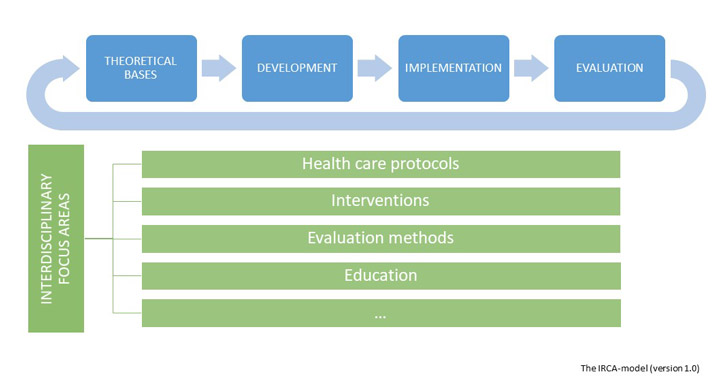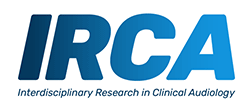Interdisciplinary Research in Clinical Audiology (IRCA)
About this group
Group information
More than one million Swedes experience difficulties when participating in an everyday conversation due to their hearing loss. In addition, approximately one child in five hundred has congenital hearing loss. To achieve sustainable development in our changing society, it is of great importance that these groups have access to early, high-quality and cost-effective rehabilitation and habilitation interventions. In such efforts, it is also important to take other disabilities into account, as well as mental and physical health.
 The IRCA research group is an interdisciplinary and multi-professional forum for the development and coordination of research with a focus on clinical audiology. Our main long-term goals are:
The IRCA research group is an interdisciplinary and multi-professional forum for the development and coordination of research with a focus on clinical audiology. Our main long-term goals are:
1) to improve the possibilities for children and adults with hearing loss to experience a high quality of life, a high degree of participation in society and a high level of everyday functioning, and
2) to extend the scientific knowledge in the area of clinical audiology.
In collaboration between researchers, user organizations, audiological clinics, and primary care units, we therefore strive to identify appropriate and effective ways to increase public knowledge about hearing, hearing loss and hearing health care, increase the accessibility of hearing health care, identify and develop safe and effective health care procedures and protocols, interventions, treatments and technology, and to document our results in established scientific and popular science channels.
Our general approach can be described with the IRCA model, which can be seen as a conceptual framework for the group's activities. The IRCA model is illustrated in the figure below. While the horizontal dimension in the IRCA model consists of a progressive circular process from theoretical bases to development, implementation and evaluation, its vertical dimension describes the group's various interdisciplinary focus areas such as work procedures, interventions, and evaluation methods.
 Being an interdisciplinary group, IRCA has the ambition to create new knowledge by drawing from scientific fields such as acoustics, artificial intelligence, cognitive science, disability research, ethics, genetics, linguistics, medicine, neuroscience, psychoacoustics, psychology, sociology, and technology.
Being an interdisciplinary group, IRCA has the ambition to create new knowledge by drawing from scientific fields such as acoustics, artificial intelligence, cognitive science, disability research, ethics, genetics, linguistics, medicine, neuroscience, psychoacoustics, psychology, sociology, and technology.
Assisting research group leader: Åsa Skagerstrand
Additional members in the research group:
Jonas Birkelöf, Research engineer, Audiologiskt forskningscentrum, Region Örebro County.
Frida Chebat, Research administrator, Audiologiskt forskningscentrum, Region Örebro County.
Regina Göransson, Unit manager, Audiologiska kliniken, Region Örebro County.
Magnus Hammar, Unit manager Audiologiska kliniken, Region Örebro County.
Kajsa Bjuresäter, Karlstad University.
Christina Bergqvist, Audiologist/research audiologist Audiologiska kliniken/Audiologiskt Forskningscentrum.
Davis Simic, engineer Audiologiska kliniken/Audiologiskt forskningscentrum.
Josefina Larsson, Audiologist, ORCA Europé.
Sofia Jansson, Audiologist/research audiologist Audiologiska kliniken/Audiologiskt Forskningscentrum.
Gillis Påhlson, Civil engineer, Audiologiska kliniken.




